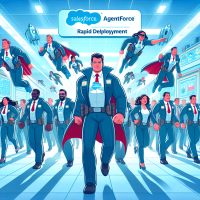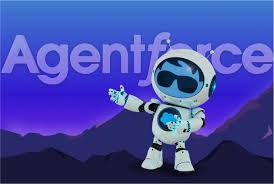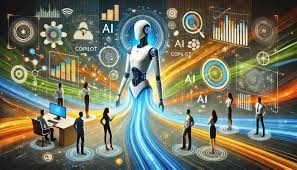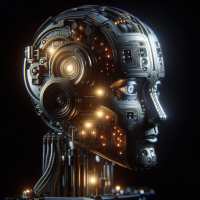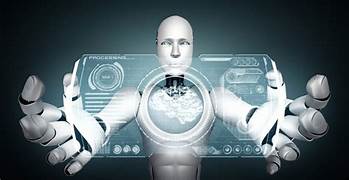Businesses Face New Challenges
Businesses Face New Challenges: AI as the Key to Better Customer Experiences and EfficiencyModern businesses are under growing pressure to deliver exceptional customer experiences while boosting operational efficiency. To meet these demands, companies are turning to AI-powered solutions at an unprecedented pace. According to Capgemini’s 2024 Report on Harnessing the Value of Generative AI, 82% of organizations plan to integrate autonomous agents into their operations within the next one to three years. Agentforce: Salesforce’s Groundbreaking SolutionDriving this transformation is Salesforce’s Agentforce, launched in late 2024. This cutting-edge platform empowers businesses to build autonomous applications capable of handling customer interactions, automating operational tasks, and enabling employees to focus on strategic priorities. Beyond Chatbots: What Sets Agentforce Apart Unlike traditional chatbots or systems reliant on manual input, Agentforce acts autonomously. It retrieves relevant data, devises actionable plans, and executes tasks seamlessly. Equipped with real-time data capabilities, it adapts dynamically while maintaining compliance with secure, customizable guidelines. Agentforce not only performs tasks efficiently but also ensures contextually relevant and insightful interactions. It transitions tasks to human employees when necessary, providing summarized interactions and actionable recommendations to ensure smooth handoffs. Revolutionizing Customer Service: 24/7 Availability Without Delays Agentforce elevates customer service by engaging with users across various communication channels using natural language. It draws from trusted sources such as CRM systems, internal knowledge bases, and external platforms to deliver accurate and timely responses. For example, customers can use Agentforce to track orders, reschedule appointments, or resolve issues via platforms like WhatsApp or Apple Business Chat. By managing routine inquiries, Agentforce allows human agents to focus on complex, high-empathy issues requiring critical thinking. Supporting Sales Teams: From Lead Nurturing to Closing Deals Sales teams often face time constraints, and Agentforce addresses this by autonomously managing repetitive tasks such as answering product questions, scheduling meetings, and following up with leads. This allows sales professionals to concentrate on high-value deals. Agentforce can also act as an AI sales coach, using CRM data to simulate role-playing scenarios tailored to specific opportunities. This enables sales teams to refine skills like negotiation and objection handling. Notably, organizations that invest in sales coaching report a 16.7% revenue increase, even with minimal managerial input. With Agentforce, this process becomes scalable, offering real-time insights and actionable feedback to enhance performance. Transforming E-Commerce: Personalized Shopping Experiences Agentforce reshapes e-commerce by delivering personalized shopping experiences. Buyer Agents assist customers with natural-language product searches, offering tailored recommendations and enabling conversational reorders via mobile platforms. For returning customers, this creates a seamless, convenient experience. For larger-scale operations, Merchant Agents leverage conversational interfaces to create promotions, analyze store performance, and recommend strategies for improving key metrics. Streamlining Marketing Campaigns with Agentforce Agentforce’s Campaign Agent redefines marketing by automating every stage of the campaign lifecycle. From generating campaign briefs and audience segments to creating personalized content and building customer journeys in Salesforce Flow, the Campaign Agent accelerates workflows with unmatched precision. Using real-time analytics, the Campaign Agent monitors performance and identifies underperforming areas, offering proactive recommendations to optimize campaigns. This eliminates reliance on manual adjustments and ensures campaigns remain agile and effective. Focusing on Strategic Work A key advantage of Agentforce is its ability to handle repetitive tasks, freeing employees to focus on more complex and strategic activities. Whether addressing intricate customer needs, negotiating major deals, or developing innovative strategies, employees can dedicate their energy to driving long-term success. By automating routine processes and providing actionable insights, Agentforce not only enhances operational efficiency but also boosts employee satisfaction. Salesforce’s Bold Vision Salesforce CEO Marc Benioff shared the company’s ambitious goal: “Our vision is to empower one billion agents with Agentforce by the end of 2025. This is what AI is meant to be.” This statement underscores Salesforce’s commitment to delivering transformative AI solutions with tangible impact for businesses worldwide. Like Related Posts Salesforce OEM AppExchange Expanding its reach beyond CRM, Salesforce.com has launched a new service called AppExchange OEM Edition, aimed at non-CRM service providers. Read more The Salesforce Story In Marc Benioff’s own words How did salesforce.com grow from a start up in a rented apartment into the world’s Read more Salesforce Jigsaw Salesforce.com, a prominent figure in cloud computing, has finalized a deal to acquire Jigsaw, a wiki-style business contact database, for Read more Service Cloud with AI-Driven Intelligence Salesforce Enhances Service Cloud with AI-Driven Intelligence Engine Data science and analytics are rapidly becoming standard features in enterprise applications, Read more

